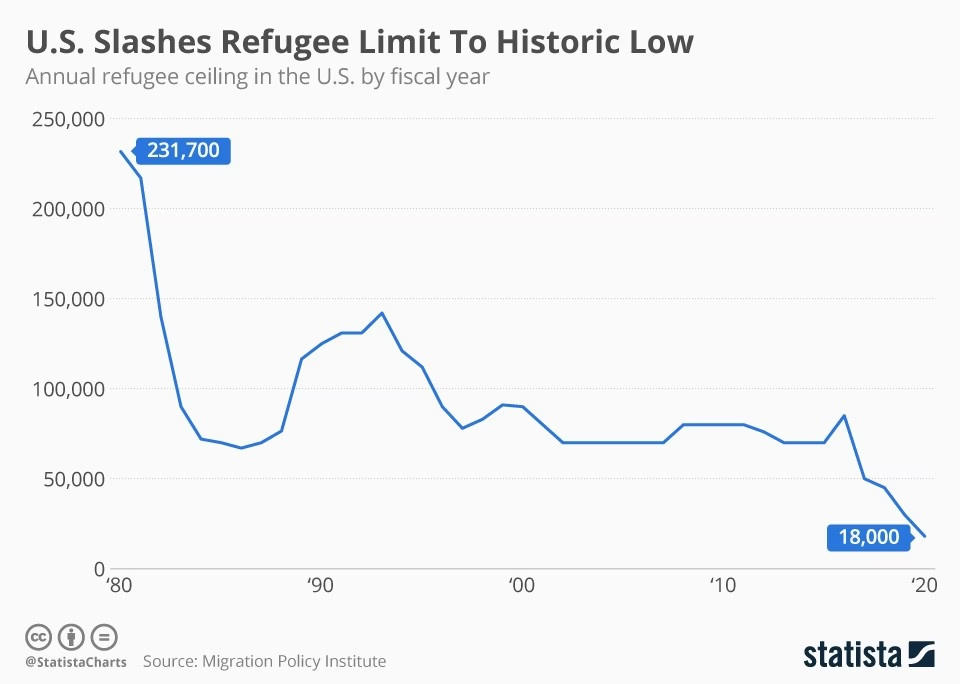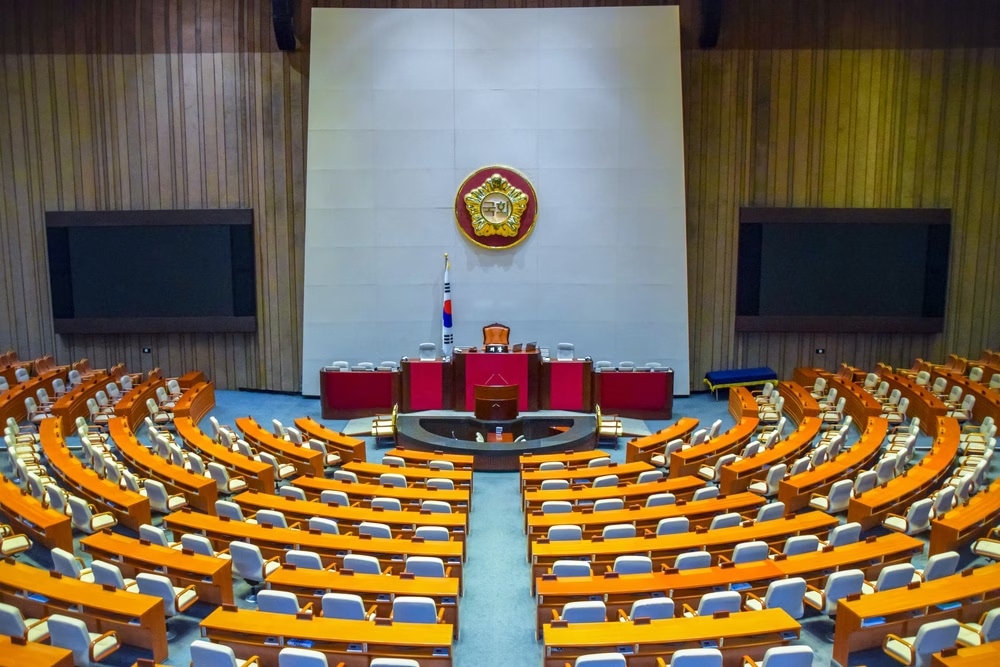Biden Flip Flops on Refugees, Leaving Many Unclear on the Path Forward
How many refugees will the U.S. admit in fiscal year 2021?
A) 125,000
B) 62,500
C) 15,000
D) Likely between 15,000 and 62,500
The answer was A. Until it was B. Then C. Then D. As the Biden administration flip-flopped, more than 715 refugees on their way to be resettled in the U.S. had their flights cancelled, and 33,000 refugees already approved by the U.S. were also left uncertain about their futures.
The following timeline illustrates the administration’s inconsistency on this sensitive issue:
- Last June: On World Refugee Day, Biden pledges to raise the cap to 125,000.
- February 12: Biden tells Congress he is scaling his promise back to 62,500. Press Secretary Jen Psaki reiterates this stance on April 12 and April 15.
- April 16: Biden issues a presidential memorandum recommending that the 2020 cap of 15,000 be kept in place.
- Hours later: After receiving backlash, Biden backtracks. He says he will release a final cap by May 15, which Psaki announces may be greater than 15,000 but is “unlikely” to be as high as 62,500.
The controversy around refugee admissions is a relatively recent phenomenon. For decades, under both parties, the cap hovered around an average of 90,000 refugees admitted per year. Considering America’s size, this was already not a particularly large number—from 2012 to 2017, the U.S. ranked 50th in per capita refugee resettlement (admittedly, there was also a surge in Europe during this time). However, under the guidance of Stephen Miller, President Trump slashedthe cap to historically low levels, politicizing the previously non-partisan program.
What is Biden’s calculus for doing this?
The administration has relayed mixed messages on the reasoning behind these changes. On April 1, Psaki asserted that the delay in raising the cap was “not related” to the recent spike of migrants on the southern border. On April 16, Biden said the opposite. Even then, Biden and Psaki claimed the changes were because the surge has stretched government resources. On the other hand, inside sources insist that given the border crisis, Biden is concerned that raising the cap would leave him open to accusations of an “open borders” immigration policy. The inside sources may have a more convincing argument, as separate departments handle refugee processing and border policy—respectively, Stateand Homeland Security.
What happened in Europe during the 2014-15 refugee crisis may be instructive here. Across the continent, a surge of arrivals inflamed ethno-nationalism. In Germany, for example, the spike coincided with the rise of the far-right AfD, and a study of Austria suggests it directly pushed voters towards the nationalist, neo-Nazi Freedom Party. Biden may be worried about a similar nativist backlash in the United States, especially considering that the approval rating of his handling of the southern border is currently abysmal.
What should America do with its refugee cap moving forward?
We should increase it.
It is worth noting that increasing the refugee cap does not mean condoning undocumented immigration, nor does it mean sacrificing our security as a nation, both of which are essential. Refugees are those who are “unable or unwilling to return to their country of origin owing to a well-founded fear of being persecuted…” They must complete a multi-year, 20-step vetting process before arriving; it’s an incredibly high bar, meaning those who qualify are in real danger and do not pose a security threat.
The U.S. has, with some important exceptions, long been a refuge to the world’s “huddled masses,” from persecuted Puritans, to Irish blighted by the potato famine, to displaced Vietnamese in the 1970s. We can, and should, continue the prouder parts of this collective heritage. There are currently 1.4 million refugees, only 4.5 percent of whom were resettled anywhere in 2019—the imperative to help is urgent. We should be honored that people the world over, from dissidents to refugees to others seeking freedom, yearn to come to our shores. They have made and continue to make our country an exceptional nation.






